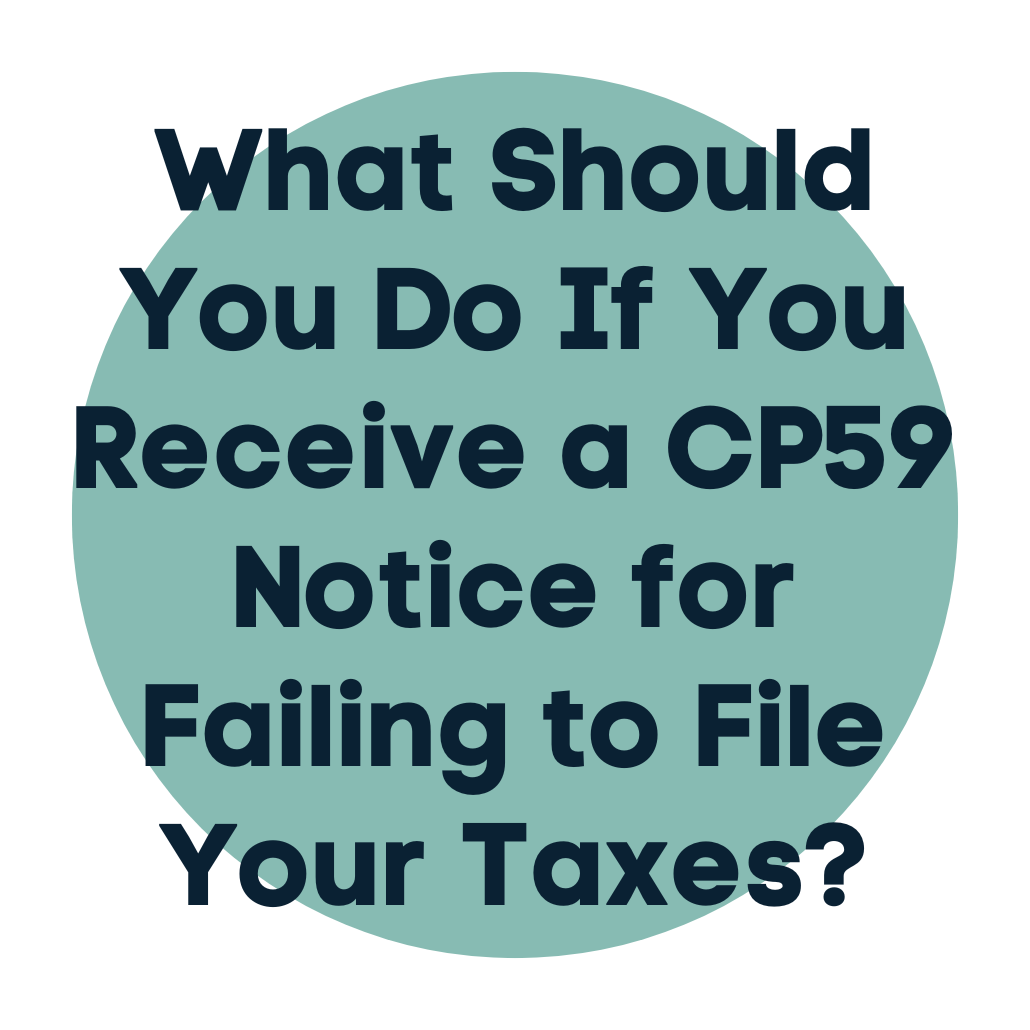
Surge in IRS Notices Hitting Mailboxes: What to Do if You Didn’t Pay Your Taxes
The IRS is cracking down on certain people who failed to pay their taxes and sending them compliance notices in the mail. This is a big deal and, in case you’re affected, be sure to keep reading to find out what to do.
More than 125,000 notices have already landed in the mailboxes of many people – considered “non-filers” by the IRS – and there will be more to come. The crackdown is thanks to funds provided to the IRS under the Inflation Reduction Act (IRA), which was signed into law in 2022.
Make no mistake about it. This onslaught of IRS notices is a big deal – because the IRS is specifically targeting these individuals, they are likely to get IRS revenue agents to investigate why they haven’t filed and paid their taxes.
The new initiative, which kicked off in March, started with IRS compliance letters sent out in cases where tax returns haven’t been filed between 2017 and 2021.
Here’s the break down on who’s receiving these notices:
- More than 25,000 notices to people with more than $1 million in income.
- More than 100,000 notices to people with incomes between $400,000 and $1 million.
Some non-filers will receive multiple notices if the IRS expects their income was in these ranges, but they didn’t file their taxes for multiple years.
How Did the IRS Find Out About the Taxpayers Who Didn’t File Their Returns?
In these cases, the IRS received third party information showing that these people made money in these ranges but didn’t file a tax return.
That information comes to the IRS through W-2 forms or 1099s submitted by another company the taxpayer worked for during the year.
The moral of the story is that it’s not so easy to hide from the IRS. If you don’t give them the information, someone else will.
What Notice Is the IRS Sending?
The letters issued in this crackdown are called CP59 notices.
A CP59 notice is sent when the IRS has no record of a person filing their personal tax return.
The notice provides two options as to what a taxpayer can do to resolve the issue:
- File their signed, personal tax return immediately.
- Explain why a return is not required.
The notice includes a return deliquency form for the recipient to complete under the penalty of perjury, asking why you haven’t filed your return.
If you received one of these notices, keep reading! Do not simply move forward and fill out the return delinquency form on your own.
The best advice is to speak to an experienced tax attorney before filling out the form to ensure your rights are protected.

What Should You Do If You Receive a CP59 Notice for Failing to File Your Taxes?
If you fall into one of the targeted income categories, you are most likely in trouble. Do not wait around for more notices, bigger penalties, and further enforcement actions against you.
It is important to speak with both a CPA and a tax attorney.
Why Should a Taxpayer Who Receives a CP59 Notice Contact Both a CPA and a Tax Attorney?
If you failed to file your taxes and the IRS is now coming to you with a CP59 Notice, a CPA or accountant can help you get your tax return filed as quickly as possible, and any taxes paid. Meanwhile, a qualified IRS tax attorney can help defend you against any civil or criminal prosecution.
You read that right. Failing to file taxes can put you at risk of both civil penalties and possibly criminal prosecution as well. While it’s unlikely for the IRS to charge someone criminally, it can and does happen.
Another important benefit of hiring a tax attorney? The communications you have with your lawyer are protected by the attorney-client privilege, which means they cannot be disclosed during any legal case against you. Conversations with your CPA or accountant are not similarly protected.

What If You Didn’t File Your Tax Return, But You Didn’t Receive a CP59 Notice Either? Are You Off the Hook?
Unfortunately, no.
If you didn’t receive a notice yet and you meet the income qualifications the IRS is targeting, it might mean you’re in even more trouble.
That’s because the IRS is not allowed to send a civil notice to someone who is already under criminal investigation.
Either way, a tax attorney can help you figure out what to do.
What Happens If You Ignore a CP59 Notice from the IRS?
Not responding to a CP59 Notice is a mistake. Failing to respond will only lead to more notices and additional enforcement actions by the IRS. That means actions to collect the taxes owed, a tax audit, or even the possibility of criminal prosecution.
It is also possible that the IRS will file a Substitute for Return (SFR), where they might create a substitute tax return for you.
With an SFR, the IRS calculates what you owe based on wages and other income reported by employers, financial institutions, and others. It also includes the taxes, penalties, and interest you owe.
In such a case, the IRS will send you a notice of deficiency CP3219N with a proposed tax assessment. The notice gives you 90 days to file your past due tax return or file a petition in Tax Court. If neither action is taken, the IRS will proceed with the proposed assessment.
Even if the IRS files a substitute return for you, it is still best to file your own tax return so you can include any exemptions, credits, and deductions that apply to you. The SFR won’t take into account your specific circumstances.
Be aware that a substitute tax return will most likely result in a tax bill. Failing to pay the bill will subsequently lead to a collection action, such as a bank levy or a notice of federal tax lien.

Get Help from a Qualified IRS Tax Audit Attorney
A CP59 notice from the IRS for failing to pay your taxes is a serious matter.
If you receive one, find an experienced IRS tax audit attorney to help you. The answers you provide on the notice could come back to haunt you. A tax lawyer can help you respond effectively to your CP59 notice, help protect your rights, and take action to reduce possible penalties.
Speak with an experienced tax attorney at The Law Offices of Alyssa Whatley now.


